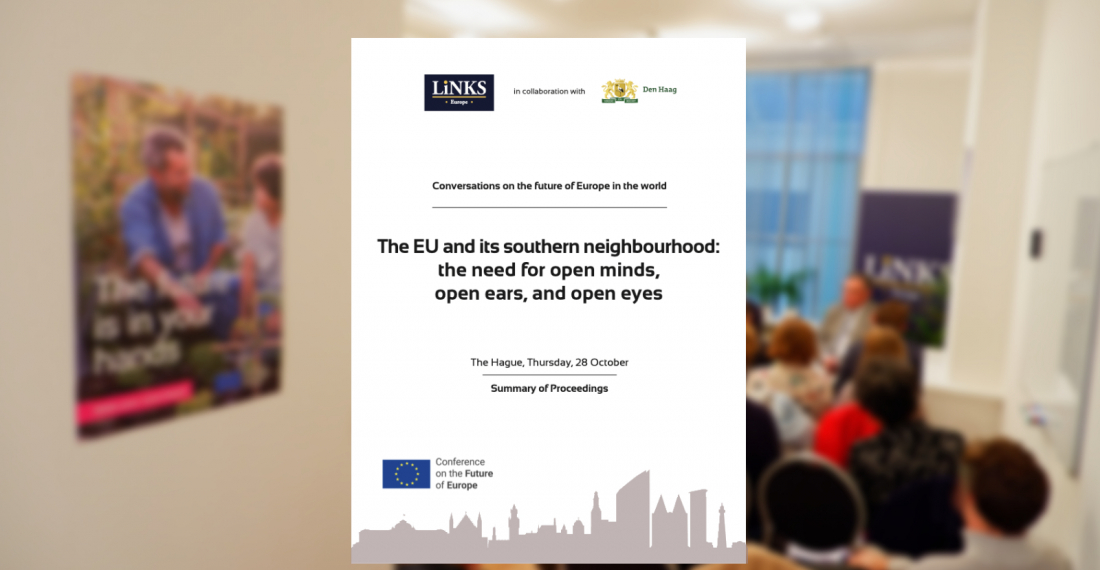On Thursday 28 October 2021, LINKS Europe, in collaboration with The City of The Hague, hosted the second in a series of events entitled ‘Conversations on the future of Europe in the world’ , at its offices in The Hague. The series is part of the EU’s ‘Conference on the Future of Europe’ process. After welcome remarks by Mr Jesse van Velzen, on behalf of the International office of The City of the Hague, participants discussed the topic: The EU and its southern neighbourhood: the need for open minds, open ears, and open eyes.
The first part of the conversation consisted of a panel discussion chaired by Mr van Velzen. The panel consisted of Dr Dennis Sammut, Director of LINKS Europe; Dr Sylvia Bergh, Associate Professor of Development Management and Governance at Erasmus University’s International Institute of Social Studies (ISS), and Senior Researcher at the Centre of Expertise on Global Governance, The Hague University of Applied Sciences; and Mr Tristan Ober, Policy Officer for Radicalisation and Polarisation at The City of The Hague.
Read the full summary here [also in Dutch].







